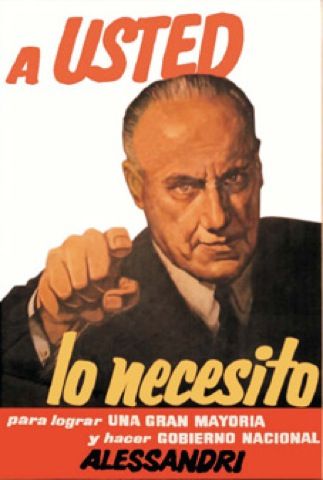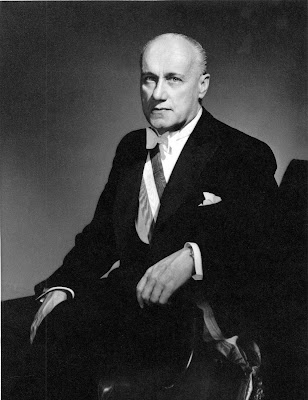 |
The armed preparation started from Allende himself and his personal guard
who had guerrilla and paramilitary training. |
One of the first presidential decrees was destined to pardon 43 young people from the extreme left, who were fugitives or prosecuted. Thanks to this presidential pardon, the leaders of the MIR, including a nephew of President Allende, were released and left the underground. Also pardoned was Arturo Rivera Calderón, leader of the ultra VOP group (Vanguardia Organizada del Pueblo), who five months later assassinated former Vice President of the Republic Edmundo Pérez Zujovic, of the Christian Democratic Party.
All those pardoned had participated in robberies of banks, supermarkets and gasoline stations. They called the proceeds of their robberies "expropriation," saying it was to acquire weapons and maintain their movement. The MIR, until the arrival of Allende, was just a small group without much influence.
Allende, when signing the decree, explained that it was "Young Idealists, with whom we had a different tactical appreciation, who acted wrongly, but driven by a higher desire for social transformation."
The MIR paraded through the center of Santiago with their red and black flags intoning their battle cry: People, conscience and rifle, MIR, MIR".
Police radio patrols were protecting them. Slngµlar paradox, because until a few days before those who paraded were outside the Law.
A novelty was exhibited by the miristas: they carried the flags on long sticks of coligüe, with a steely tip. These sticks, called lynchaks, served as a weapon for Korean guerrillas in the 1950 war.
Later, the miristas would carry two small rods joined at one end and that also served the guerrillas to strangle the enemy. Likewise, the miristas introduced a novelty in the political parades by marching armed with helmets.
Those who saw that first presentation by the extremists had doubts that violence would be eradicated, as President Allende maintained. And he, by calling them "young idealists" went on to grant a visa to the apostles of violence. Soon the troops of the Ramona Parra Brigade, formed by young communists, would be added to the miristas, and who remembered a young woman killed in a fight twenty-five years ago.
The Socialists would form the Elmo Catalán Brigade, in memory of a former secretary of Carlos Altamirano (its top leader) who tragically died in Bolivia, where he had gone to join the guerrillas.
For their part, on the opposite side, the nationals (from the Right) created the Rolando Matus Brigade, in memory of a young farmer murdered by Marxist extremists. And on the extreme right, the Patria y Libertad Movement arose, destined to combat Marxism.
President Allende himself began to have an armed body. This had been born in the days following the elections of September 4th. Wherever he went he did so accompanied by a score of very corpulent individuals who did not hide that they were armed.
These guys rudely prevented anyone from getting close to Allende. Those who tried to do so were repelled with shoves and elbows along with profanity.
* You may also like:
The Socialist Experience in Chile (Part I): Three years before
The Socialist Experience in Chile (Part II): I am not the President of all Chileans
 |
| Communist brigades painted murals and were armed to attack opponents |
It had been a tradition that the leaders, and even the former Presidents of the Republic, had protection from the PDI (civilian police) and Carabineros. For this reason, this strange security device made up of individuals with the appearance of gunmen caused comments.
Allende took it upon himself to explain who they were: "This is a group of personal friends of mine, whose loyalty and courage I fully trust."
From that day on they were known as the GAP (Group of Personal Friends).
 |
The GAP were famous for the casual brutality with which they acted.
Wrecked cars demonstrated their action. |
Most of its components were Miristas and Socialists. His boss, Max Joel Marambio, who had been trained in Cuba, used the false name of Ariel Fontanarosa.
Marambio specified the duties of the GAP: The bullet that could be directed at the comrade President, must be received by us, and nothing else but us''.
The GAP was equipped with FIAT 125 vehicles and its men equipped with pistols, silenced automatic rifles and machine guns. Cubans, North Koreans and North Vietnamese, experts in guerrilla warfare, were brought in as instructors. They constantly trained on Andean foothills.
 |
Max Joel Marambio, head of the Allende GAP, had organised the personal guard,
made up of militants from the MIR and the Socialist Party, many of them with criminal records |
Several residences had Allende. One of them, in El Cañaveral, had a guerrilla training camp, equipped with innumerable weapons of Soviet and Czechoslovak origin. There was even a mined sector there.
In Tomás Moro 200, the presidential residence, and in El Cañaveral, Allende's rest residence, pavilions were built for the GAP, which numbered two hundred men. But, apart from taking care of Allende's personal safety, GAP members went on to become teachers in the guerrilla schools that proliferated in the country. ·
The expression "licensed to kill", attributed to Ian Fleming's fictional character James Bond, seemed to come true with the GAPs. Knowing that they were protected and that they could go almost unpunished, they flaunted their arrogance, especially when they were off duty and out partying. Alfonso Cortés Soto, a member of the Socialist Youth, who left the GAP disappointed, said: "They told me that it was a group of young people who had practically decided to live near comrade Allende, but gradually discovered that those recruited were rude and behaving like a gang of lowly gunmen.
 |
| Several residences had Allende. One of them, in Cañaveral, had a guerrilla training camp, equipped with innumerable weapons of Soviet and Czechoslovak origin. There was even a mined sector there. |
Allende himself had to decide to reorganize the GAP Headquarters after Justice had to intervene due to the murder of a 17-year-old teenager who worked as a gardener in El Cañaveral and who was killed by one of them. Likewise, it was common for pitched battles to take place between the two sides into which that paramilitary body had been divided.
When a magistrate reconstituted the crime scene of the gardener in the presidential residence, the GAP shot at the bodies of the journalists who approached.
Everything indicated that the purpose announced by Allende in his first press conference, that his revolution would be "with empanadas and red wine (in other words, like the cheerful snack of Chileans on picnics), was vanishing.
 |
The extremist group Vanguardia Organizada del Pueblo (VOP), made up of
socialists with dual militancy, used training targets to sharpen their aim |
It did not take long for those pardoned by Allende to renew their violence. The VOP began an escalation of crimes of extreme ferocity: they robbed a candy store, murdered its owner and then abused his body; They robbed a supermarket and killed a Carabinero. All those crimes would go unpunished, until they committed the most heinous political crime.
Furthermore, the violence was in the words. And they would pull the trigger against those considered "counterrevolutionaries."
The newspapers and magazines (those that had proliferated printed in the state workshops and financed with State advertisements), the stations and television in the hands of the Popular Unity distilled a virulence never before known.
 |
The former Vice President of the Republic, Edmundo Perez Zujovic,
was the first victim of the hate campaign initiated by the Popular Unity |
Anyone who disagreed, or who had an attitude that displeased the Popular Unity, was a victim of the worst expletives, of coarse language not used in any other newspaper in the world. The most "elegant" thing he was told was "CIA agent, sold to Imperialism."
The Judiciary began to fall into the same anathemas.
When the Supreme Court denied the removal of immunity (he is stripped of his parliamentary jurisdiction and can be prosecuted) of the opposition senator Raúl Morales Adriasola, the socialist deputy Mario Palestro called the Ministers of the Court "pimps, matchmakers and bastards".
 |
The Rivera Calderon brothers were found in a Santiago neighborhood. The police operation
turned into a real hunt, since the police forces had to go up to the roofs of the houses |
The favorite target of the UP press was Edmundo Pérez Zujovic. He had been Minister of Frel and Vice President of the Republic. The Christian Democrats considered him a kind of older brother, and admired his moral and human stamp.
As a result of the professional investigation by the police, Eduardo Paredes was forced to order the arrest of the VOP militants implicated in the murder of Edmundo Perez Zujovlc.
The extreme left evidenced his distaste for him, and gave him the fame of "tough" when he was Minister of the Interior and was uncompromising in defending his principles and applied the Law and authority without weakness.
 |
As a result of the professional investigation by the police, Eduardo Paredes was forced
to order the arrest of the VOP militants involved in the murder of Edmundo Pérez Zujovic |
He was Minister of the Interior when in Puerto Montt, a thousand kilometers south of Santiago, there was a tragic confrontation between police officers and residents, with a balance of nine victims. A hundred families instigated by the socialist deputy Luis Espinoza (who later acquired a reputation as a violentist) occupied some land and refused to leave.
Although the eviction order came from a provincial authority, which did not consult Santiago, Pérez Zujovic assumed full responsibility. Many times he repeated to those close to him that Puerto Montt "hurt" him, even though he had been oblivious to what happened there.
The UP press daily attributed Pérez Zujovic involvement in some plot or maneuver against the Allende government.
 |
Perez Zujovic and former President Frei were close friends (the Vice President was the godfather
of one of the Chilean president's daughters). Frei was also in the sights of the assassins |
The Rivera Calderón brothers were found in a Santiago neighborhood. The police operation turned into a real hunt, since the police forces had to go up to the roofs of the houses.
The VOP placed it on the list of their "rifleables". He had taken up the words of the socialist senator Adonis Sepúlveda, who said when the events in Puerto Montt took place: 'The only responsibility that we socialists recognise is that of not having been able yet to create the necessary organisms to respond bullet by bullet, dead for dead". In the sights of the assassins, came later the former President Frei and the Christian Democratic senators Patricio Aylwin and Juan de Dios Carmona, as was later recognised by a statement by the Political Commission of the PC, in which he condemned the events. It was the Plan Z advance.
And the VOP carried out a treacherous massacre of Edmundo Perez Zujovic. A car cut him off when he had just left his house with one of his daughters. Two men armed with machine guns got out of the vehicle, while the third waited at the wheel. One of the perpetrators, with the butt of the machine gun, smashed the windbreak window of the left door. All in fraction of seconds. Pérez Zujovic and his daughter Maria Angélica did not try anything, not even talk to them so that they would give up or exchange any words. The fear of near death had stopped their lives. The barrel of the machine gun entered the car, Pérez Zujovic lowered his head, it is possible that he muttered a prayer. And he started the barrage of bullets.
 |
| While the detectives run after Ronald Rivera, there are others who wait for the moment to kill the murderer. Paredes wanted to silence him. This happened after several hours of siege |
The VOP called the crime "revolutionary shooting."
"We have to kill hate before hate poisons and kills the soul of our Chile," Cardinal Raúl Silva expressed dismay.
Allende told the DC his belief that the assassins belonged to the far right, and that they had committed the crime to harm the UP.
 |
| Eduardo "Coco" Paredes was one of the most controversial figures of the Popular Unity regime. He was even accused of being a traitor by modest villagers whom he strongly repressed. When Allende fell he took up arms and confronted the public force; he died in the fray. |
"The enemies of the Fatherland stop at nothing," he said.
The Director of Investigations, Eduardo Paredes, went on to contradict him. He revealed to journalists that the crime had been committed by the VOP, headed by the Rivera Calderón brothers. He acknowledged that a month earlier he had interrogated them for their possible participation in various assaults and crimes, leaving them free for lack of merit.
At dawn on Sunday, June 13th (four days after the murder), Paredes himself led the manhunt for the Rivera Calderón brothers, refugees in a tenement house in a modest neighbourhood. In vain the two brothers tried to surrender by raising a white flag. Both were shot to death.
 |
The funerals of former Vice President Perez Zujovic gave rise to moments of deep emotion. Thousands of people accompanied him to his final resting place. Beyond political considerations, they were united in this gesture by a repudiation of the violence and the climate of terror that was prevailing in the country.
|
Only later would the sordid links between Paredes and the VOP assassins become known. Hence, the Director of Investigations decided to seal that blood pact with their death, to prevent them from speaking.
The culmination of that tragic sequel was missing. Heriberto Salazar, known as "El Viejo", before belonging to the VOP, had been a Carabinero. Paredes' betrayal to the VOP made him decide to exact revenge. He presented himself to the guard at the Investigation Barracks asking to speak with Director Paredes "for a personal matter."
There were inquiries inside and Salazar understood that they would not let him in, or that he would be subject to review. He suddenly pulled out a concealed machine gun and began firing into the barracks, killing three policemen. Lastly, he lit a stick of dynamite and was blown to pieces.
 |
Three Investigations detectives died as a result of the explosion caused by the leader of the VOP, Heriberto Salazar, in the General Mackenna barracks. Salazar was going to "do justice" for the denunciation made by Eduardo Paredes. Detectives Carlos Paez, Mario Marin and Gerardo Romero paid tribute to the double militancy of the Director of Civil Police at the time.
|
Had Pérez Zujovic's death been planned by Eduardo Paredes himself?
He was one of the strangest characters of the Allende regime. He was a doctor, but he did not practice. He was considered a psychopath. Later he would lead an operation against a Mirista camp, where he would kill a resident and wound several others. And he would also be the central protagonist of the case of the Cuban packages, worthy of a special chapter.
The murder of Edmundo Pérez Zujovic and the evidence that the perpetrators were Marxists, and that they were part of the "young idealists" pardoned by Allende, caused a stir in the country.
***************************************************************
* Information based mainly on the work by Hernan Millas and Emilio Filippi "Anatomy of a Failure".
Hernán Millas was born on May 5th, 1921, and studied Law for a year at the University of Chile, and later devoted himself to journalism. He worked as a reporter and columnist in the newspapers El Clarín and La Época, in the "Ercilla" and "Hoy" magazines, and on the Santiago radio. He also wrote several books. And in 1985 he received the National Prize for Journalism.
Emilio Filippi, University Professor received the National Journalism Award in 1972 with a mention in writing. He began his life in journalism in 1942 working for the newspaper "La voz de la columna" in Villa Alemana, of which he became its director. In 1965, he joined as Zig-Zag's newspaper publishing manager.
He was director of the magazine "Ercilla" between 1968 and 1976. He was the founder and director of the magazine “Hoy” and of the newspaper "La Época'' (1987), which he directed until 1993. Same year that he was ambassador of Chile in Portugal, appointed by President Patricio Aylwin.




































